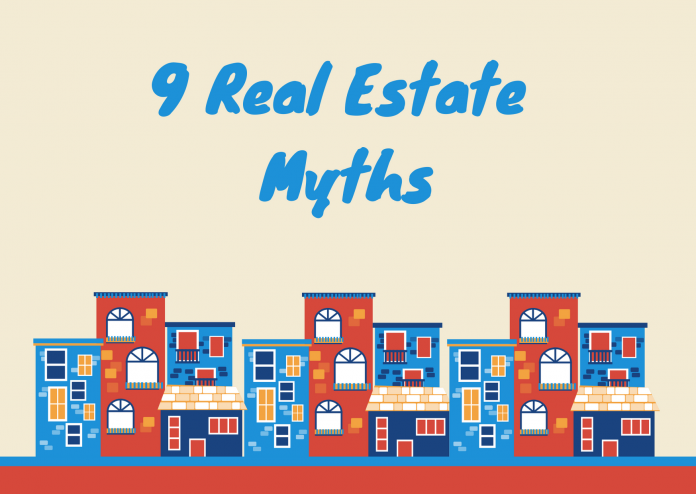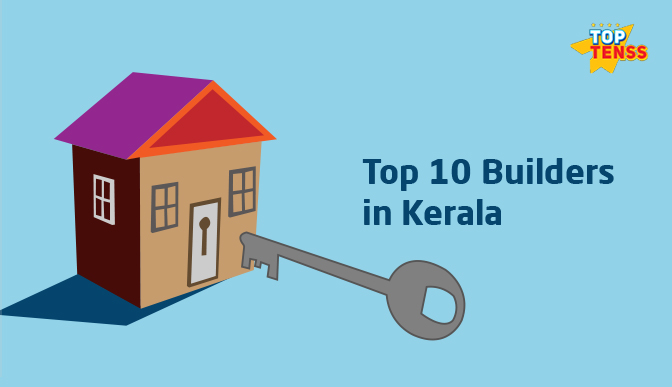Real Estate Myths that you need to avoid. Our blog will help you to avoid dangerous myths that you never even imagined.
Contents
Real Estate Myth 1:- Contracts are not Negotiable
Negotiation is a crucial component of the real estate process. How long will the seller wait to sell? What do you want from the inspection?
Do you want the house keys in the box or on a key ring? Consumers learn the importance of negotiation in the home buying and selling process but often fail to embrace this valuable skill in their real estate transactions: myth, Real estate transactions financed by debt.
No one can dispute those real estate transactions financed by debt. But do you know how much debt is involved? When a real estate transaction funded by a loan or a loan plus another form of debt? Real estate contracts are financed by debt in the form of a lender’s note and an appraisal.
Real Estate Myth 2:- Buyers and Sellers can Always Agree on a Price

The way the market is going right now, anyone who wants to buy a home is looking at a bidding war, and buyers who priced out of the market (like millennials) could be looking at rising rents.
Simply put, there is no “perfect” home to buy or a “perfect” house to sell, but anyone who thinks they have all the information about the market has a lot to learn.
For example, Denver has seen the lowest number of single-family home sales in decades, and many buyers in the market now are choosing to rent overbuy.
While this number may not reflect the larger market, the results of a study in December by Zillow should be a warning for investors looking to buy because it found that young buyers are deciding to rent as a better long-term option.
Real Estate Myth 3:- The seller always has the upper hand
Sellers’ egos might be significant, but they have been burned enough times by dishonest brokers that they can’t be too trusting.
Listing your home for sale is a serious business that requires no less than a committed commitment from both you and the listing agent.
Sellers need to be sure of the listing agent’s fees and professional commitment to moving the sale forward. Trust can’t assure if you don’t have complete transparency.
Myth 4The homebuying experience is similar for all buyers. Homebuyers come from all walks of life, have different preferences, and be distracted by a wide range of emotions.
Some people are born to make money and others to create it, but each buyer’s real estate experience is unique.
Real Estate Myth 4:- The longer you wait to sell, the more it will go up
It’s a common belief that houses appreciate the most in the first few years, which is why sellers hold onto their homes for as long as possible. However, there’s no objective basis for this notion.
Homes don’t appreciate in the first few years after purchase. Instead, they depreciate due to increasing prices for comparable homes in the area and the homeowners who have moved on to newer homes or higher-end neighborhoods.
In other words, houses depreciate while on the market, which means that when you’re ready to move on to something else, the price tag is almost the same as the home you’re leaving.
Real Estate Myth 5:- You can always get a lower price if you settle for less
There is an upside to negotiating a lower offer. In most cases, the seller is interested in moving the sale closer to closing.
However, there are a few ways to end up selling for less than your asking price. The first is that a prospective buyer won’t put in an offer at all.
A price drop that happens out of the blue usually means there are severe problems with the property.
The best scenario to deal with a low offer is not to negotiate it at all. If you can get the best deal by selling above asking, ask the buyer to take the request, and they’ll accept it.
Unfortunately, a great deal like that often goes to another buyer, and the seller is stuck with nothing. Another adverse scenario is that you accept an offer below, asking to get that buyer to agree to pay higher in the future.
Real Estate Myth 6:- Buying an investment property is always a bad idea
Caption Many people buy investment properties because they think it will increase their net worth.
Source Bojan Milinkov/Shutterstock If you aren’t a full-time real estate investor, you might think you can’t save money by buying real estate as an investment.
But plenty of people use real estate to supplement income or improve their finances. People often purchase investment properties for one reason: they want to be a landlord.
Some people use a real estate investment property as their primary residence from the opposite end of the spectrum. Myth 7Buying a house is a good investment caption. Many people buy a home to live in, not flip it for profit.
Real Estate Myth 7:- You should never use a real estate agent.
Yes, agents provide many of the services of a broker. In many instances, they have the experience and understanding to make you a more informed and successful buyer or seller.
However, an agent is only as successful as his or her commission. Even if the agent was a licensed broker, the real estate market would be reluctant to pay the broker’s commission.
Myth 8You should always pay your agent in full. Just because you paid a broker in full doesn’t mean you should have to pay a licensed agent in full.
Agents usually charge a retainer fee to make sure the real estate transaction goes smoothly. They then use the service fees generated to execute the transaction.
Real Estate Myth 8:- You should always make an offer above the asking price
Miyoko Shimbun, a licensed California real estate broker, is the founder of Uncommon Los Angeles and Uncommon Properties and author of LA Home and LA Garden: A Designer’s Guide to a Healthy Lifestyle.
“Anyone selling their home will tell you that at the end of the process, you’re not talking about what you want to sell your home for; you’re talking about what they want to sell their home for,” Shimbun says.
That’s where the math comes in. “If the price is $750,000 and you get two offers, the first one is $650,000, and the second one is $700,000, you only need one offer above asking price to get the deal done,” she says.
That doesn’t mean there’s anything wrong with making an offer that’s too high.
Real Estate Myth 9:- The more you negotiate, the more you’ll get
The public has little understanding of how contracts are written. They think that the more you deal, the more you’ll get.
What they’re missing is the value of this role reversal — a great agent will help guide the buyer through the process by encouraging them to think through every option and negotiating a price that considers the realities of the market and the benefits of that price.
Myth 8The quickest way to market a home is to host open houses.
I would much rather help a client sell their home than open it up to the public. When a place has been on the market for several years, it can often be a stale, dated property.
Even without showings, bombarded with a stream of prospective buyers — they don’t show up.
Section
Title Estate Planning This is the eighth most common mistake — and it’s not the only one. Most buyers believe that it is a big deal to hold title to the remaining owner’s home.
But in reality, owning a home requires that the person be the legal owner of the property. The label on the house, where the seller holds title to the home, is separate from the home title.
This is only the case when it’s a foreclosed home, though. Title insurance provides the peace of mind that the buyer needs to make an investment of this size.
If the title is in good condition, the buyer will be covered through the closing. Pricing Your Home To Sell This is one of the most straightforward myths to kill because it has been around for so long.
















